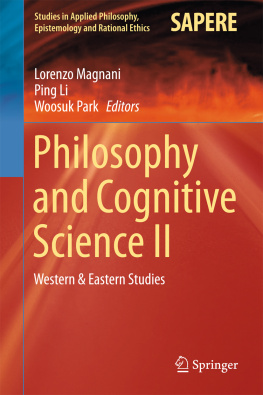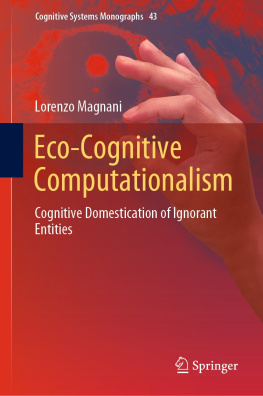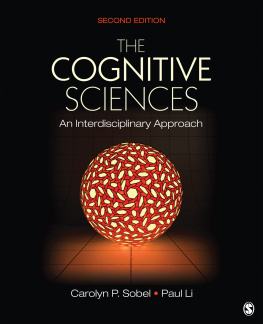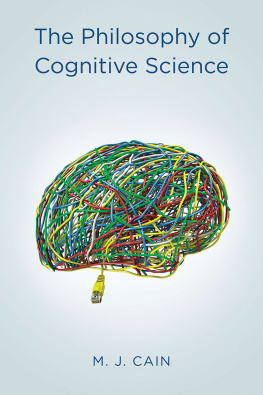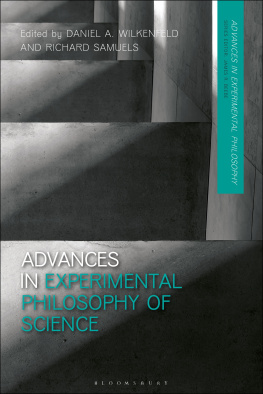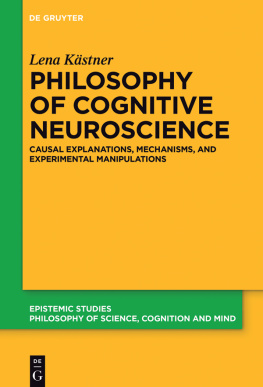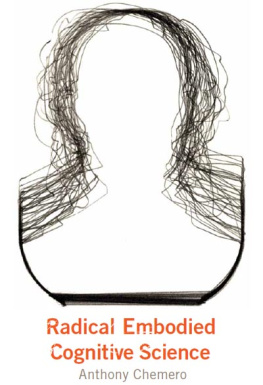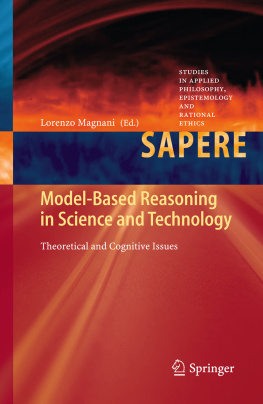Lorenzo Magnani - Philosophy and Cognitive Science II: Western & Eastern Studies
Here you can read online Lorenzo Magnani - Philosophy and Cognitive Science II: Western & Eastern Studies full text of the book (entire story) in english for free. Download pdf and epub, get meaning, cover and reviews about this ebook. City: S.l, year: 2015, publisher: Springer International Publishing, Cham, genre: Romance novel. Description of the work, (preface) as well as reviews are available. Best literature library LitArk.com created for fans of good reading and offers a wide selection of genres:
Romance novel
Science fiction
Adventure
Detective
Science
History
Home and family
Prose
Art
Politics
Computer
Non-fiction
Religion
Business
Children
Humor
Choose a favorite category and find really read worthwhile books. Enjoy immersion in the world of imagination, feel the emotions of the characters or learn something new for yourself, make an fascinating discovery.
- Book:Philosophy and Cognitive Science II: Western & Eastern Studies
- Author:
- Publisher:Springer International Publishing, Cham
- Genre:
- Year:2015
- City:S.l
- Rating:3 / 5
- Favourites:Add to favourites
- Your mark:
Philosophy and Cognitive Science II: Western & Eastern Studies: summary, description and annotation
We offer to read an annotation, description, summary or preface (depends on what the author of the book "Philosophy and Cognitive Science II: Western & Eastern Studies" wrote himself). If you haven't found the necessary information about the book — write in the comments, we will try to find it.
The book shows how eastern and western perspectives and conceptions can be used to addresses recent topics laying at the crossroad between philosophy and cognitive science. It reports on new points of view and conceptions discussed during the International Conference on Philosophy and Cognitive Science (PCS2013), held at the Sun Yat-sen University, in Guangzhou, China, and the 2013 Workshop on Abductive Visual Cognition, which took place at KAIST, in Deajeon, South Korea.
The book emphasizes an ever-growing cultural exchange between academics and intellectuals coming from different fields. It juxtaposes research works investigating new facets on key issues between philosophy and cognitive science, such as the role of models and causal representations in science; the status of theoretical concepts and quantum principles; abductive cognition, vision, and visualization in science from an eco-cognitive perspective. Further topics are: ignorance immunization in reasoning; moral cognition, violence, and epistemology; and models and biomorphism. The book, which presents a unique and timely account of the current state-of-the art on various aspects in philosophy and cognitive science, is expected to inspire philosophers, cognitive scientists and social scientists, and to generate fruitful exchanges and collaboration among them.
Lorenzo Magnani: author's other books
Who wrote Philosophy and Cognitive Science II: Western & Eastern Studies? Find out the surname, the name of the author of the book and a list of all author's works by series.

